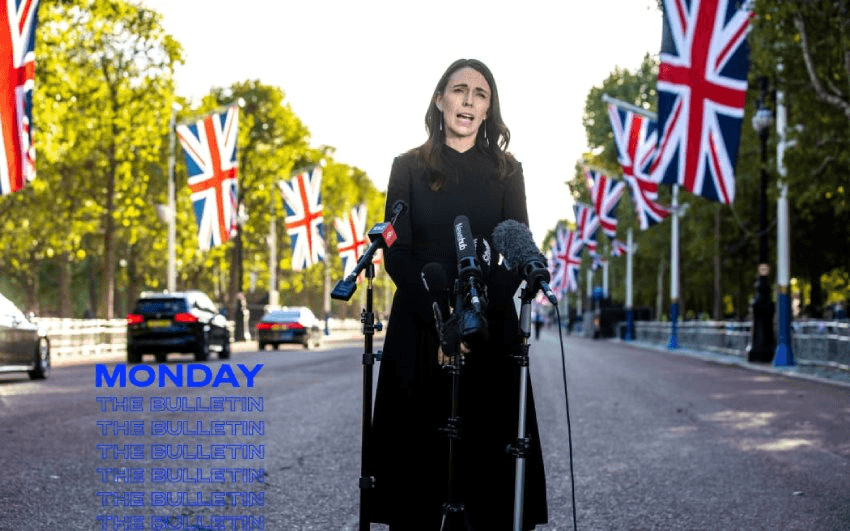As Britain and the Commonwealth prepare for Queen Elizabeth II’s funeral, dissenting views on the strength of feeling about the monarchy and its ongoing role in New Zealand are emerging, writes Anna Rawhiti-Connell in The Bulletin.
Vast chasm between traditional media and social media response to Queen’s death
Queen Elizabeth II’s funeral will take place tonight (NZT). 1News, Newshub and RNZ will carry it live. It will also stream on the Herald. There are currently 146 people waiting for the stream to start on YouTube. I imagine many of you will join millions around the world in watching it. There will be no surprises, the plans carefully laid out for years. Simultaneously there will be an entirely expected and also very volatile response to it all online. If the last ten days have been characterised by anything for me, it has been the marked contrast between an adherence to protocol by traditional media and the total abandonment of it on social media. I’ve been so struck by it, perhaps because it’s the most significant death of a member of the royal family in the age of social media that I’ve written about it on The Spinoff this morning.
Coverage of the queue and a dissenting view
British broadcasters are gearing up for what some are picking will be the biggest television event in British history. Broadcasters from smaller countries are desperately trying to secure space. Apparently there’s been “demand for stereotypically plummy voiced British “royal experts” who can explain various traditions to overseas viewers.” Stuff’s Andrea Vance has a report from the most famous queue in the world at the moment, while this perspective from social psychologist Stephen Reicher offers an alternative view. Reicher outlines some reasons why people might be gathering that aren’t about a nation united by a singular sentiment or national grief.
The rumblings of the republic debate
Appearing on the BBC last night, prime minister Jacinda Ardern was asked about New Zealand becoming a republic. “My observation is that there will continue to be an evolution in our relationship. I don’t believe that it will be quick or soon, but over the course of my lifetime,” Ardern said. Various points of view are being proffered here in New Zealand with Ben Thomas making the case for retaining the monarchy as a lesser of two evils, while Thomas Coughlan (paywalled) takes a look at the likely political pathways to even starting the process. In Australia, some are wondering if Anthony Albanese’s commitment to moving the country towards becoming a republic is being dimmed by the response to the Queen’s death. He’s now said there will be no referendum on the matter in his first term. Malcolm Farr writes “The pageantry of the royal succession process has all but eliminated debate on an Australian republic.”
The role of Te Tiriti in the republic debate
The latest episode of RNZ’s Focus on Politics is worth a listen for a broad range of perspectives on how we might handle both the debate and process around becoming a republic and the role of the Treaty in it. Former prime minister Sir Geoffrey Palmer, says if Australia becomes a republic, New Zealand will likely follow suit although he notes that the “process of decolonisation, or the shadow of it, is not yet quite complete in this country and I think you ought … to be seen to be in charge of your own system.” Te Pāti Māori co-leader Rawiri Waititi says New Zealand as a nation just needs to be mature enough to have those conversations about the Crown and the Treaty of Waitangi. Te Matahiapo Safari Hynes was part of the Māori Constitutional Convention last year and raises concerns about what impulsive calls for a republic would mean for Te Tiriti.


